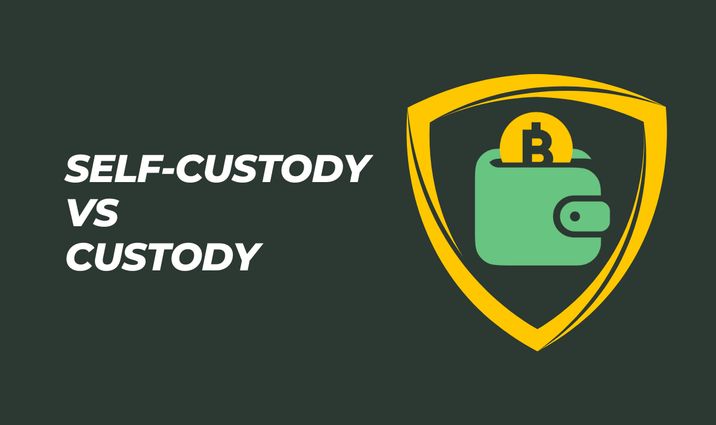Why Self-Custodial Wallets Offer Better Security Than Custodial Ones

According to Chainalysis.com, in 2024, stolen funds increased by about 21% year-over-year (YoY) to $2.2 billion. The number of individual hacking incidents also rose, from 282 in 2023 to 303 in 2024.
Most of the affected platforms were decentralized finance (DeFi) services, exchanges, and custodial wallets. We just need to look at the $305 million DMM Bitcoin hack, one of the biggest crypto attacks so far. It might have happened because the private keys were not managed properly or because security was not strong enough. In general, crypto solutions that store users' private keys often become prime targets for hacks. In this article, we’ll explain why self-custodial solutions are safer than custodial options.
Key Control
No Intermediaries
Privacy
Availability and Independence
Safety through diversification
The Bottom Line
Key Control
Using self-custodial solutions, you are fully responsible for the security of your assets. Unlike custodial platforms that store your private keys on their servers — where they could be vulnerable to hacks — only you have access to your private keys. It might seem more difficult, but it’s much more reliable.
For example, Coin Wallet saves only some unimportant user information in an encrypted backup on its servers, such as information about language and preferred fiat currency. Thanks to this, all data like this will be available on all user devices.
However, Coin Wallet doesn't save your private keys on its server. We save the keys on a user's device, such as a smartphone or a personal computer.
Your private keys are linked to your Coin Wallet addresses. Here's how the creation process looks:
- Your private keys are created from the passphrase when you register with Coin Wallet.
- Each coin has its own address, so Coin Wallet addresses are created from your private keys.
Your passphrase → your private keys → Coin Wallet addresses
Together they are used to authorize sending and receiving transactions.
A friendly reminder: the security of your private keys and any mnemonic (backup) phrase is entirely your responsibility. Always be careful.
No Intermediaries
When you use a self-custodial wallet, you must trust only yourself. Compared to custodial wallets, this approach carries minimal risk. For example, if an exchange or custodial platform is compromised, you risk losing access to your assets.
Coin Wallet does not store, send, or receive cryptocurrency. Coin Wallet is software that generates wallet addresses and private keys, which you can use to send and receive tokens. All transactions take place directly through the blockchain, without involving third-party services. This reduces the risks associated with possible failures or hacks of centralized platforms.
Privacy
Using self-custodial wallets, your personal information isn't shared with third parties. On custodial platforms, your account information may be collected. This creates additional security risks.
Coin Wallet also doesn't collect your personal information. No KYC (Know Your Customer) verification is required to use Coin Wallet. All data is encrypted for maximum protection, and user anonymity is guaranteed.
Availability and Independence
Self-custodial wallets give you full access to your funds at all times, regardless of whether a service or platform is operational. They also protect you against potential restrictions, freezes, or sanctions that could be imposed on a platform under legal or financial pressure.
Coin Wallet is available across multiple platforms, including iOS and Android apps, as well as Windows, macOS, and Linux desktop versions. This gives users flexibility and independence from specific devices or operating systems.
Extra Layers of Security
Self-custodial wallets often offer additional security features, such as two-factor authentication (2FA), multi-signature transactions, and other protections against key loss or theft. Custodial wallets may offer similar features, but vulnerabilities in their systems can make them less effective.
Coin Wallet supports hardware keys. They protect the user's critical operations like sending transactions and exporting private keys.
The Bottom Line
Custodial platforms are often more vulnerable because their developers focus on rapid growth and product launches rather than building strong security from the start. This makes them easy targets for hackers. For that reason, in 2025, self-custodial solutions like Coin Wallet are proving to be safer and more reliable than custodial ones.